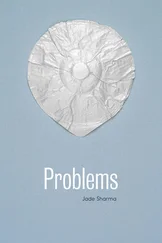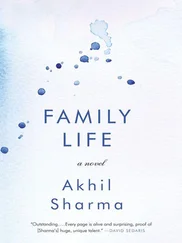Akhil Sharma - An Obedient Father
Здесь есть возможность читать онлайн «Akhil Sharma - An Obedient Father» весь текст электронной книги совершенно бесплатно (целиком полную версию без сокращений). В некоторых случаях можно слушать аудио, скачать через торрент в формате fb2 и присутствует краткое содержание. Год выпуска: 2000, Издательство: W. W. Norton & Company, Жанр: Современная проза, на английском языке. Описание произведения, (предисловие) а так же отзывы посетителей доступны на портале библиотеки ЛибКат.
- Название:An Obedient Father
- Автор:
- Издательство:W. W. Norton & Company
- Жанр:
- Год:2000
- ISBN:нет данных
- Рейтинг книги:4 / 5. Голосов: 1
-
Избранное:Добавить в избранное
- Отзывы:
-
Ваша оценка:
- 80
- 1
- 2
- 3
- 4
- 5
An Obedient Father: краткое содержание, описание и аннотация
Предлагаем к чтению аннотацию, описание, краткое содержание или предисловие (зависит от того, что написал сам автор книги «An Obedient Father»). Если вы не нашли необходимую информацию о книге — напишите в комментариях, мы постараемся отыскать её.
Ram Karan, a corrupt official in New Delhi, lives with his widowed daughter and his little granddaughter. Bumbling, sad, ironic, Ram is also a man corroded by a terrible secret. Taking the reader down into a world of feuding families and politics,
is a work of rare sensibilities that presents a character as formulated, funny, and morally ambiguous as any of Dostoevsky’s antiheroes.
An Obedient Father — читать онлайн бесплатно полную книгу (весь текст) целиком
Ниже представлен текст книги, разбитый по страницам. Система сохранения места последней прочитанной страницы, позволяет с удобством читать онлайн бесплатно книгу «An Obedient Father», без необходимости каждый раз заново искать на чём Вы остановились. Поставьте закладку, и сможете в любой момент перейти на страницу, на которой закончили чтение.
Интервал:
Закладка:
K sha stepped out of the bathroom into the common room.
She wore her school uniform, a blue shirt and a maroon skirt. The common room is nearly empty and has pink walls and a gray concrete floor. In a corner a fridge hums, because the kitchen is too small to hold it. Along a wall crouch a pair of low wooden chairs. On the bathroom's outside wall are a sink and a mirror. Asha looked in the mirror and combed her hair. The prettiness she had had while sleeping was still there. I could take care of Asha, as I had by arranging her admission to Rosary School. The idea of purpose soothed me.
Father Joseph was going to be difficult and disorderly I had no subsidized land or loan to offer in immediate return for the money I needed to collect. The funds were for the Congress Party's parliamentary campaign, and the favors earned by donating would have to be cashed in later. Also, this was the second time in twelve months that Parliament had been dissolved and elections called. Most of the principals I handled for Mr. Gupta, the supervisor of Delhi municipality's physical education program, were resisting a second donation. Besides, I had to collect enough to impress the Congress Party officials who reviewed Mr. Gupta's efforts, but I could not take so much that Father Joseph would later resist giving when the money was for those of us who worked in the education department.
Asha went onto the balcony and hung her towel beside mine on the ledge. In comparison, hers looked little bigger than a washcloth. When she returned, I asked, "Do you want some yogurt?" The only time Asha ate anything eagerly was when she thought that the food was in some way special. Asha normally got yogurt only with dinner. I ate yogurt twice a day because the doctor had suggested it.
For a moment she looked surprised. Then she said, "Absolutely."
"Get two bowls and spoons and the yogurt."
Asha brought these. I was too fat to fold my legs and so usually sat with them open in a V She knelt before me and, placing the bowls between my legs, began spooning yogurt into them. I was wearing just an undershirt and undershorts, as I normally do around the flat. But that morning, because I had seen Asha as pretty for the first time, I felt shy and tried pulling in my legs. I couldn't, and a bright blossom of humiliation opened in my chest.
Anita stepped to the kitchen door. "What are you doing?" she asked. Anita was wearing a widow's white sari. For a moment I thought she was asking me.
"Nanaji said I could have some yogurt," Asha answered.
Anita considered us. Her forehead furrowed into lines as straight as sentences in a book. She was short, with an oval face and curly hair that reached her shoulder blades. Anita turned back into the kitchen. I believed she felt her presence was a burden on me. When I offered to pay for Asha's schoolbooks, Anita refused, even though Rajinder had not left her much. She also gave me detailed accounts of what she bought with my money.
Anita came out of the kitchen with our breakfasts. She and Asha sat across from me. We all had a glass of milk and a salty paratha. Asha ate her yogurt first and quickly. When she could no longer gather anything from the inside of the bowl with the spoon, she licked it.
"We should buy more milk so you can make more yogurt for her," I told Anita. I was carefully scraping my bowl to get the last drops. I held the bowl at chest level and dipped my mouth down to suck on the spoon, because bringing my hand up to my neck caused
it to tremble. The yogurt's sourness made my shoulder muscles loosen and made even this indignity bearable.
"She wouldn't eat it."
"I would," Asha said.
"She'd eat it two days, Pitaji, and then stop."
Asha stared into her lap.
After a moment Anita contemptuously added, "Milk is going up every day. I ask why and the milkman says, 'Tell America not to fight Iraq.' "
"His cows drive cars?" My voice came out loud and Anita's face froze. "Let's try it for two days, then," I added softly, feeling sorry that Anita thought I could turn on her.
Anita gathered our plates and stood. She went into the kitchen and squatted beneath the stone counter that runs around the kitchen at waist level. She turned on a tap. It gave a hiss, but only a few drops fell out. Anita sat down and looked at the plates for a moment. Beneath the counter were several tin buckets full of water.
"Thank God we had water this long," I said.
Anita turned to me, and she appeared so intent I thought she might be angry. "We should thank God for so little?" She did not wait for me to answer. Anita began washing the dishes with ashes and cupfuls of water from a bucket.
Often I felt Anita was acting. She wore only white and always kept her head covered as if she were a widow in a movie. These details, like many others about her, appeared so exactly right, they felt planned.
"We should buy a water tank," I said. "Ever since I became Mr. Gupta's man, I make so much money I don't even know how to hide it." Anita did not respond. My guilt thickened. The kitchen is tiny, yet Anita spent most of her days there, even reading the paper while crouched on the floor. I think Anita did this because she filled the kitchen completely and this comforted her.
I asked Asha to get me a glass of water from one of the clay pots in the corner of the room. When she brought it, I held up the pills I must take every morning and asked, "Do you know what these are?"
"Medicine, Nanaji."
"Yes, but they are of three different kinds. This one is a diuretic," I said, lifting the orange one with my thumb and forefinger. "It makes me get rid of a lot of water so that my heart doesn't have so much to move. This one" — I pointed to the aspirin—"thins my blood, and that also means my heart works less. And this one," I said, referring to the blue one with a cross etched on it, "is called a beta blocker." I said beta blocker twice because it sounded dramatic. "This keeps my heart from getting excited."
I had not meant to start the explanation, but the quick self-pity and anger it evoked made me realize guilt was irritating me. I continued talking and the feelings eased. I was glad I had found an opportunity to reveal some part of my life, because it would make my asking Asha questions feel more natural. I held the pills out for a moment and then swept them into my mouth.
Asha wandered to the living room and turned on the television. Before leaving for school, she would move more and more slowly, so that it took her ten minutes to put her books in their bag. Asha was taking classes in May, even though most schools were closed, because she had missed many days when her father died. Rosary was one of the few schools that had government approval for a summer program and that was why I had had her admitted there. I went into the living room to watch the television news. Eventually Asha shuffled into the bedroom she and Anita shared. Through the doorway I saw her putting on white ankle-length socks and small black shoes. At a quarter past eight, she slung a satchel full of books around one shoulder and came to her mother in the kitchen to say goodbye. Anita kissed both of Asha's hands and her forehead. I saw this from my room, where I was dressing, and felt sad and guilty again. The first anniversary of Radha's death was in two days.
Half an hour later, when I left for the office, Anita was on her knees mopping the floor of their bedroom. She had a fold of her sari over her head and held it in place by biting it. The bed she and Asha sleep on almost completely fills the room. Flies were switching
about. The sight of Anita kneeling and the formality and shyness of the covered head made me think of how badly I had used my life.
"Talk to the pundit," Anita said, looking up at me. I had yet to arrange the pundit for Radha's prayers. Although Anita had told me to do this several times over the week, there was nothing accusatory in her voice. Suddenly I was angry I glared at her, until she turned her head down. Then I said, "Why are you always covering your head? You aren't at your in-laws'. People will think you're afraid of
Читать дальшеИнтервал:
Закладка:
Похожие книги на «An Obedient Father»
Представляем Вашему вниманию похожие книги на «An Obedient Father» списком для выбора. Мы отобрали схожую по названию и смыслу литературу в надежде предоставить читателям больше вариантов отыскать новые, интересные, ещё непрочитанные произведения.
Обсуждение, отзывы о книге «An Obedient Father» и просто собственные мнения читателей. Оставьте ваши комментарии, напишите, что Вы думаете о произведении, его смысле или главных героях. Укажите что конкретно понравилось, а что нет, и почему Вы так считаете.












